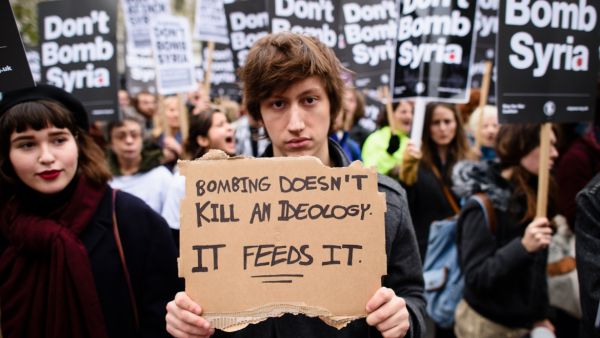Australian authorities are preparing for an influx of foreign fighters returning from Syria and Iraq who may pose a security threat, the country's justice minister said Wednesday.
As the Daesh organization continues to suffer military defeats in Syria and Iraq "its modus operandi will change ... to being an underground terrorist organization," Michael Keenan said in Sydney.
Those who were not killed would seek to return to their country of origin and continue their struggle, he said, adding that there were "a number of Australians" with "lengthy military experience" and "a deepened commitment to the Islamic State cause."
Around 200 Australians have travelled to Syria and Iraq to join the conflict on various sides since 2014, with at least 68 Australians being killed.
Meanwhile Australia is investigating approximately 200 people for providing support to individuals and groups in the conflict or seeking to travel there themselves, Keenan said.
"We must be ready with strategies to protect the safety of our communities and the welfare of children," Keenan said in his speech at the Lowy Institute, an Australian think-tank.
"Terrorists returning from the Syria/Iraq conflict zone have the potential to cause serious security concerns."
Four extremist attacks have been carried out in Australia in the last two years, according to Keenan, while authorities have charged 51 people on extremism-related offences since 2012.
Keenan said "a terrorist attack in Australia is most likely to be undertaken by an individual or a small group using weapons and tactics that are low-cost, relatively simple and easy to acquire."
Australia has a range of laws prohibiting Australians from taking part in foreign conflicts.
The arrest threshold for terrorism offences has also been lowered from "suspects on reasonable grounds" to "reasonable grounds to suspect."
Keenan defended the change, saying it has been an essential tool in many counterterrorism operations.
The justice minister said it was regrettable to see more minors, including children as young as 14, engaged in extremist activities.
"Of the 38 people currently before the courts for terrorism-related offences, six are juveniles – a year ago there were none," he said.
By Subel Bhandari








